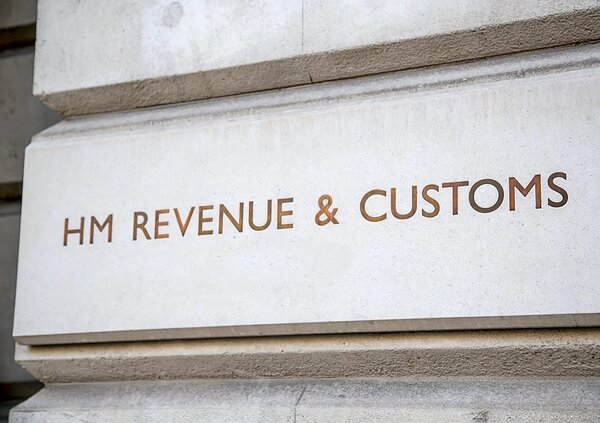What Happens to Your Wealth After You’re Gone?
Talking about inheritance tax isn’t exactly fun—but it’s important if you want to make sure your loved ones get the most out of what you leave behind.Inheritance Tax (IHT) is the charge on a person’s estate after they pass away. In the UK, there’s a tax-free allowance called the nil rate band, currently £325,000. Anything above that? It’s taxed at 40%.
Knowing how IHT works isn’t just smart—it’s essential if you want to minimise what’s lost to tax and maximise what goes to your family and friends.
In this guide, we’ll break it down simply and show you how to plan ahead.
Let’s get started!
What happens to inheritance tax when a parent dies?
When a parent dies, inheritance tax might not be immediately payable. That’s because assets passing between spouses or civil partners are usually exempt from inheritance tax.
The situation changes significantly upon the second parent's death. This is often when inheritance tax becomes a real concern for families, as the basic rate is 40% on the value of the estate above the tax-free threshold.
What is inheritance tax when the second parent dies?
When your second parent passes away, inheritance tax becomes payable on their estate if it exceeds the tax-free threshold, known as the nil-rate band. Currently, this standard nil-rate band is £325,000 per person.
The good news is that any unused nil-rate band from the first parent who died can be transferred to the second parent’s estate. This means the second parent’s estate could potentially benefit from a tax-free allowance of up to £650,000.
There’s also the residence nil-rate band, which provides an extra allowance of up to £175,000 per person when passing on a main residence to direct descendants. When combined, these allowances could allow a couple to pass on up to £1 million tax-free to their children or grandchildren.

Inheritance Tax Threshold and Nil Rate Band
The Inheritance Tax threshold, also known as the nil rate band, is the portion of an estate that is exempt from inheritance tax. Currently, this threshold is set at £325,000. Any amount above this threshold is subject to inheritance tax at a rate of 40%.
Married couples and civil partners can benefit from a higher threshold by transferring their unused nil rate band to their partner. This effectively doubles the threshold to £650,000.
Additionally, the residence nil rate band provides an extra allowance of £175,000 for main residences left to direct descendants. When combined, these allowances can increase the total tax-free threshold to £1 million, allowing more of the estate to be passed on without incurring inheritance tax.
How is the tax calculated and paid?
The executors of the will are responsible for paying inheritance tax to HMRC, typically within six months of the death, to avoid accruing interest on the outstanding amount. This tax must usually be paid before probate can be granted and the assets distributed to beneficiaries.
Sometimes, the estate might need to sell assets to pay the tax bill if they owe inheritance tax. This can be particularly challenging if most of the value is tied up in the family home or other illiquid assets.
Some assets, like certain business property or agricultural land, might qualify for tax relief, potentially reducing the overall bill. These reliefs can be substantial but require careful documentation and application.

Inherited Property and Market Value of Assets
When a parent dies, their estate, including any inherited property, must be valued to determine the amount of inheritance tax owed. The market value of assets such as property, investments, and personal possessions is used to calculate the total value of the estate.
It is essential to obtain professional valuations for high-value items like houses or stock market investments to ensure accurate calculations. The entire estate, including bank accounts, personal belongings, and any rental income, is considered when determining the taxable value. Accurate valuations are crucial for calculating the correct amount of inheritance tax owed.
What exemptions might help reduce the tax bill?
Gifts made more than seven years before death are usually exempt from inheritance tax, and certain gifts may qualify for additional exemptions. This is why many parents start giving away assets early, though care must be taken to avoid certain anti-avoidance rules.
Leaving money to charity can reduce your inheritance tax bill. Estates that give 10% or more to charity might qualify for a reduced tax rate of 36% instead of 40%, which can result in significant savings. Additionally, taper relief can reduce the tax liability on gifts made within seven years before death.
Small gifts of up to £250 per person per tax year are exempt, as are regular gifts made from normal income. Additionally, there’s a £3,000 annual exemption that can be given to anyone tax-free each year.

How can families plan ahead for inheritance tax?
Start thinking about inheritance tax planning while both parents are still alive. Early planning gives you more options and potentially greater tax savings over the long term by understanding the estate's total value.
Consider setting up trusts to manage how assets pass to the next generation and to navigate the complexities of various taxes. Some trusts can help reduce inheritance tax liability, though the rules around them have become more complex in recent years.
Life insurance policies written in trust can provide funds to pay inheritance tax bills without being part of the taxable estate. This can be particularly useful when the main asset is the family home.
Keep detailed records of all gifts and financial decisions. This makes things much easier for executors later on and helps ensure all available exemptions are properly claimed.
What should you do after the second parent dies?
Get professional help immediately. Dealing with inheritance tax after losing your second parent is complex and emotionally draining, especially when grieving. Get professional help immediately to manage your parent's estate and navigate the complexities of inheritance tax.
Gather all financial information, including details of any gifts made in the seven years before death. Check if there are any transferable nil-rate bands available from the first parent’s estate.
Submit the inheritance tax forms to HM Revenue & Customs (HMRC), even if no tax is due. This is a legal requirement that must be completed accurately to avoid penalties or delays in the probate process.
Pay any tax due within the time limits to avoid interest charges. In some cases, you may be able to pay inheritance tax in instalments, particularly on assets that might take time to sell.

Final Words: Plan Smart, Protect More
Inheritance tax can feel complicated, but getting the right help can make a huge difference—and potentially save your family thousands.
A tax advisor or solicitor who specialises in inheritance tax can help you spot every exemption and relief you’re entitled to, making sure you’re not paying a penny more than necessary. I’ve seen families save over £100,000 just through smart planning. In one case, simply restructuring how a family business was owned cut their inheritance tax bill in half!
The truth is, the cost of good advice is often far less than the tax you could save. That’s where pie comes in the UK’s first personal tax app, designed to make tax simple for working individuals with real-time tax figures, smart bookkeeping, and expert support when you need it most.
Planning ahead, reviewing your situation regularly, and staying on top of changes in tax laws can make all the difference for your loved ones later on. Small steps today = big rewards tomorrow.
You've got this—and with pie.tax, you’re already one step ahead.











